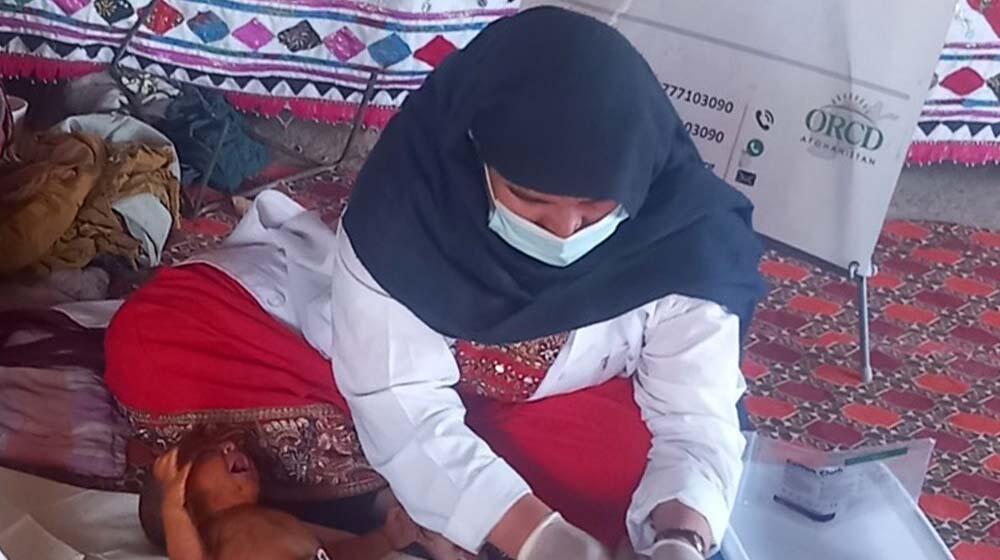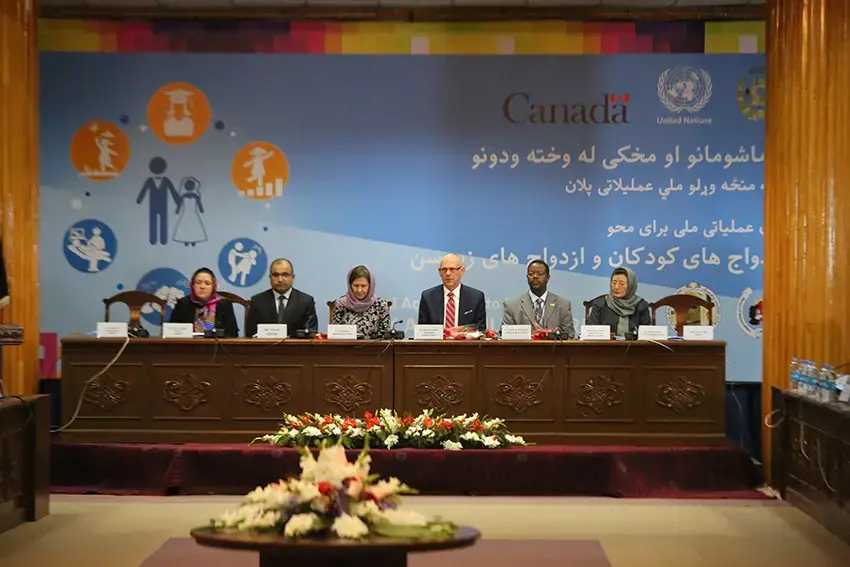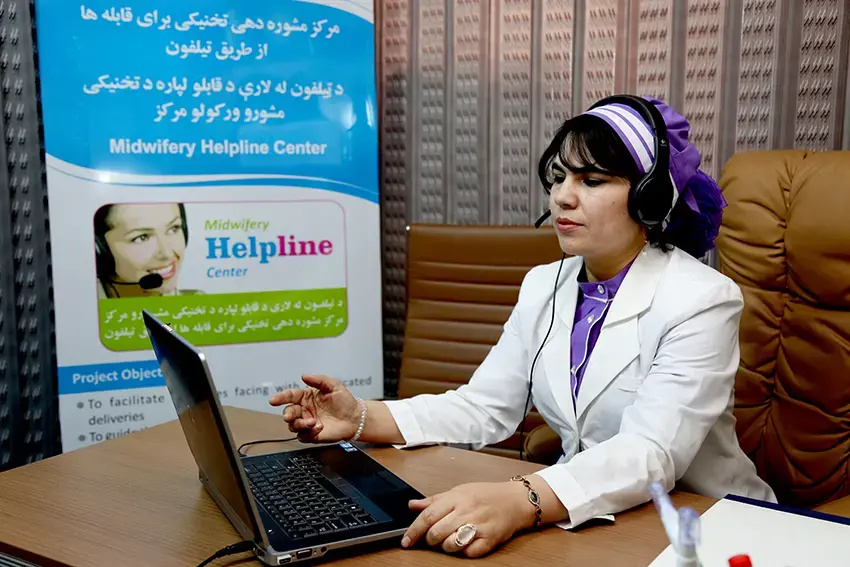The nomadic populations in Afghanistan, especially women and girls of reproductive age, have a pressing need for medical services, but their constant relocation hinders their access to consistent healthcare.
One of these women, Gul, was fortunate to have settled in a district in Ghazni province during the final weeks of her pregnancy, allowing her to experience life-changing support by visiting the UNFPA-supported Mobile Health Team (MHT) for antenatal care.
The midwife observed that Gul urgently needed medical assistance and guidance for her pregnancy, as she had not received antenatal care before meeting the midwife.
Like other nomadic groups, Gul, 27, resides in a temporary tent with her husband and two children. The nomads utilize tents as their living quarters and transport them whenever they relocate.
After prescribing medication and providing guidance to Gul, the midwife advised Gul’s husband to contact the MHT whenever help was needed related to Gul’s pregnancy.
A few weeks later, the MHT received a phone call from someone anxiously seeking assistance. “It was Gul’s husband urgently seeking help for his wife,” the midwife remembered.
The MHT midwife and doctor recognized the urgency of Gul's situation. They immediately responded, and luckily, they found the family's tent after an hour-long journey guided by updates from the husband. The MHT is supported by UNFPA with funding from the Government of Australia.
"When we got there, Gul was lying down with two women comforting her,” the midwife recalled. The midwife learned that Gul had been in labour for several hours.
The midwife administered oxytocin to stimulate contractions. An hour later, a healthy baby boy was born, and the successful delivery brought great joy to everyone around Gul at that time. "The family was overjoyed. The neighbours told me they never thought help would come when called, as it had never happened before," the midwife shared.
The MHT’s prompt response not only saved the life of a nomadic woman who otherwise would not have access to healthcare. Gul’s story underscored the significance of accessible healthcare in remote regions for nomadic communities.
This experience emphasized the vital function of MHTs in closing healthcare gaps and ensuring that even the most isolated communities can receive timely care. The commitment and swift actions of MHTs in nomadic areas highlight the crucial role that dedicated midwives play in providing essential healthcare services to remote populations. Through their steadfast dedication, MHTs continue to significantly influence the health and well-being of families throughout Afghanistan.





